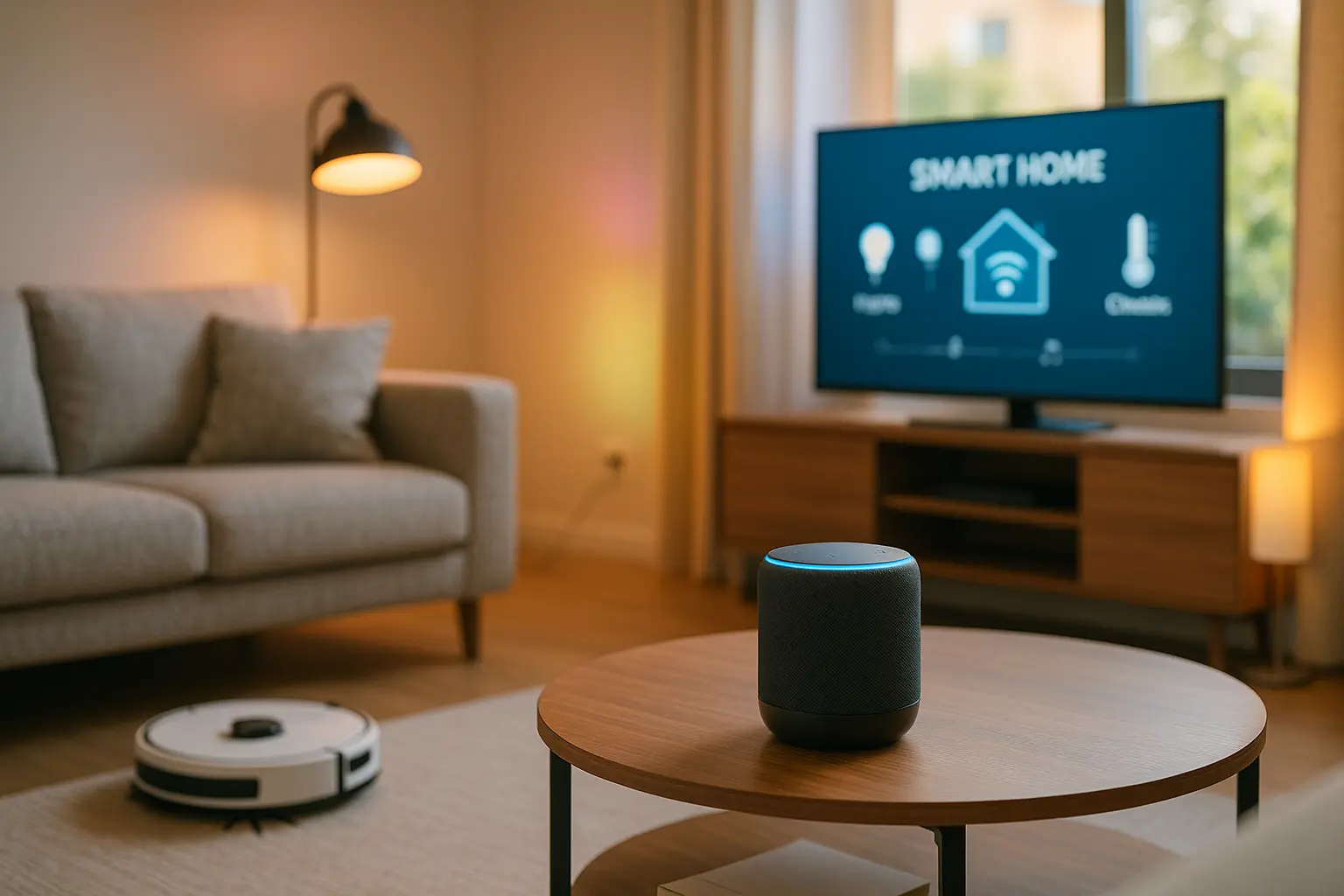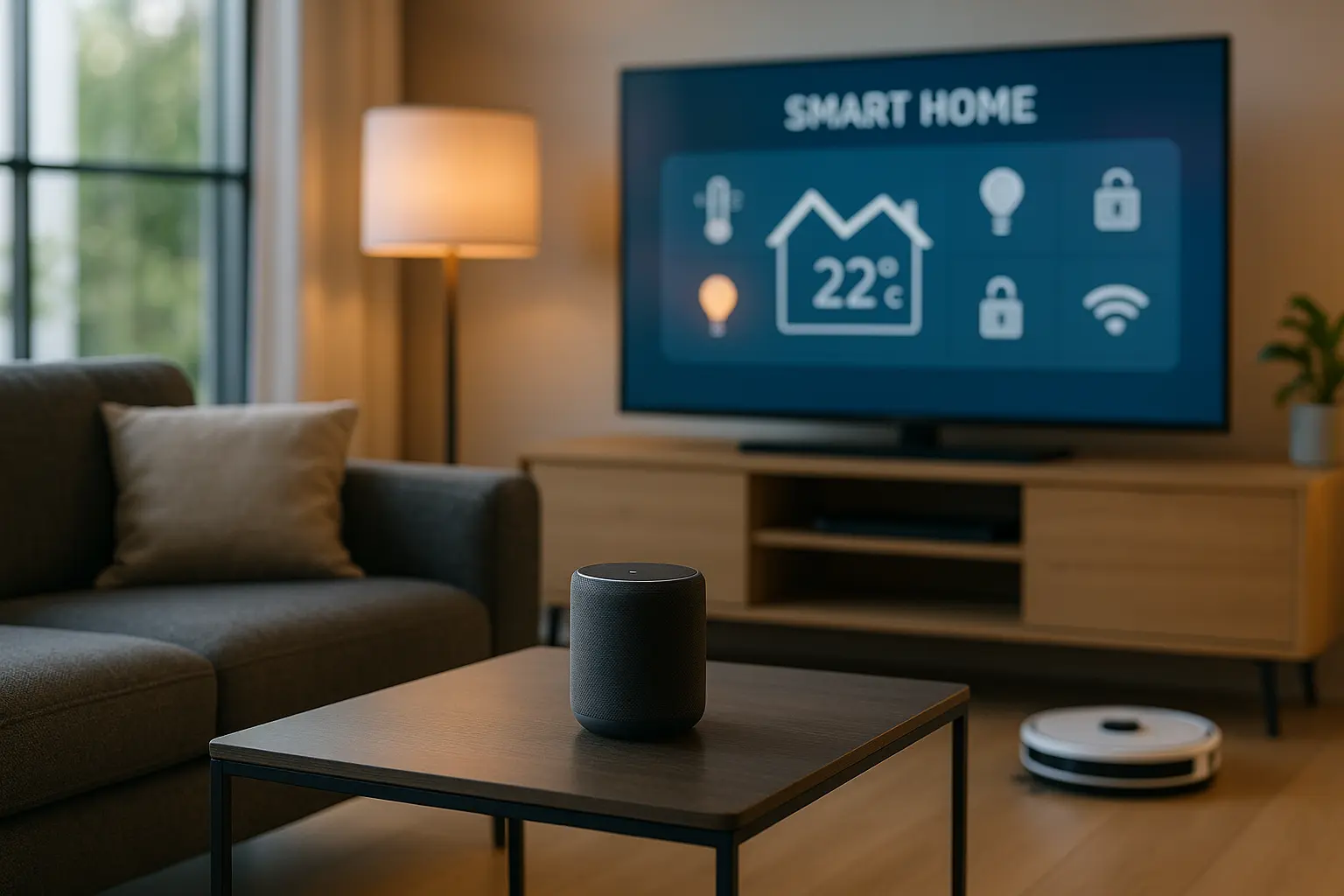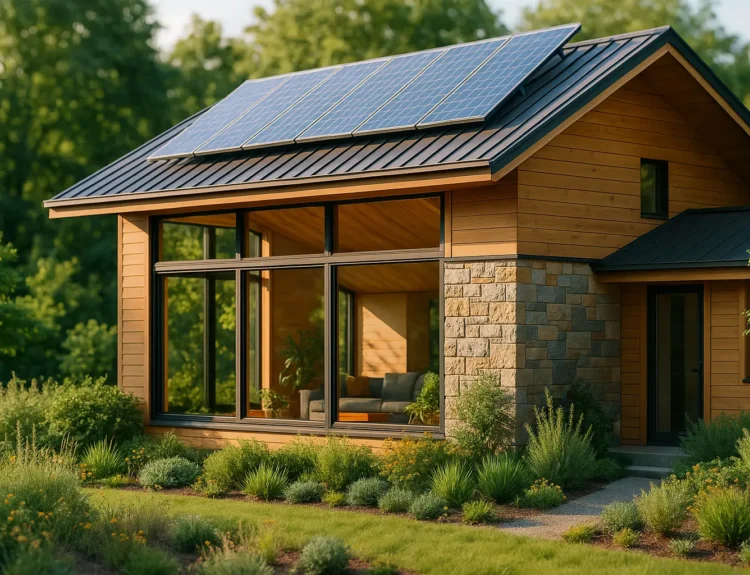In today’s rapidly evolving world, the transformation of our living spaces into smart homes is nothing short of revolutionary. The surge in technology is not just about convenience; it’s about reshaping the essence of real living. But what does this smart home phenomenon truly mean for us? In this article, we delve into the intricate tapestry of modern technological marvels that are redefining the boundaries of energy, security, and automation within our homes. Join us as we explore how this transformation is enhancing our everyday experiences and why it’s the cornerstone of future living.
The Power of Smart Lighting Systems
Imagine walking into a room where the lights automatically adjust to your mood. This isn’t a scene from a sci-fi movie; it’s the reality of modern smart lighting systems. These systems offer more than just illumination; they bring a new level of control and efficiency to our homes. With advancements in the Internet of Things (IoT), we’re now able to manipulate our lighting from anywhere. Whether it’s through an app on our smartphone or via voice commands, the convenience is unparalleled.
Smart lighting isn’t just about control; it’s a gateway to energy efficiency. By adjusting the brightness and usage patterns, we can significantly reduce our energy consumption. Motion sensors ensure that lights only operate when needed, minimizing waste. Moreover, with automation, we can schedule lighting sequences that mimic our presence, enhancing home security.
This blend of automation and control not only optimizes energy usage but also elevates our living experience. As we embrace these innovations, it’s clear that smart lighting is more than a trend—it’s an evolution in how we interact with our homes.
Security Systems for the Modern Home
Security has always been a cornerstone of a safe home. In our increasingly connected world, security systems have evolved, becoming more intelligent and responsive. Today, we’re witnessing the integration of smart technology that does more than just raise an alarm.
Modern security systems utilize a network of devices and sensors, all communicating seamlessly. With real-time data analysis and automation, these systems provide an unprecedented level of protection. From video doorbells that allow us to see who’s at the door, no matter where we are, to motion-detected cameras that can alert us of unusual activity, the control is in our hands.
Moreover, the Internet of Things (IoT) plays a pivotal role in these advancements. By connecting our security devices to a unified platform, we can control and monitor our homes with ease. This not only enhances our protection but also brings peace of mind. As we continue to integrate these systems, it’s clear that smart security is not just a futuristic concept; it’s the new standard in safeguarding our living spaces.

Efficiency and Convenience with Smart Appliances
The heart of a smart home lies in its appliances. These devices are no longer isolated units; they’re part of a cohesive system designed to enhance efficiency and convenience. The modern smart appliance is a testament to the power of technology in simplifying our lives.
From refrigerators that track data on food expiration to dishwashers that optimize water usage based on load, the advancements are remarkable. Smart appliances are engineered to learn our habits and adapt, providing a personalized and seamless experience.
Automation is at the forefront of this transformation. Imagine your coffee maker syncing with your morning alarm, ensuring that your coffee is ready when you wake up. Or your washing machine adjusting its cycle to suit the energy demand, reducing costs and environmental impact.
As we integrate these technological marvels into our homes, the benefits are clear. We’re not just saving time and energy; we’re embracing a lifestyle where convenience meets conscious living. This fusion of innovation and efficiency is a glimpse into the future of smart homes.
The Role of IoT in Home Automation
The Internet of Things (IoT) is the backbone of the smart home revolution. It connects various devices and systems, transforming how we interact with our living spaces. With IoT, our homes are not just connected; they’re intelligent, responsive, and adaptive.
IoT-enabled devices communicate real-time data, allowing for seamless control and automation. From thermostats that learn our temperature preferences to voice assistants that manage our daily schedules, the possibilities are endless. This interconnected system ensures that every element of our home works in harmony, enhancing both convenience and efficiency.
Moreover, the use of big data and machine learning in IoT enables predictive analysis. This means our homes can anticipate our needs, improving both comfort and efficiency. As these technologies evolve, they’re paving the way for a future where our homes are not just smart but intuitive.
In embracing IoT, we’re not just upgrading our homes; we’re redefining what it means to live smartly. This shift represents a significant leap in technology, one that’s set to shape the future of living.
As we navigate the digital age, it’s clear that smart technology is revolutionizing the concept of home. The integration of devices, systems, and automation is not just about keeping up with a trend; it’s about redefining our living experience. From smart lighting and security systems to appliances and IoT, the transformation is profound.
We stand at the cusp of a new era where technology simplifies living and amplifies the quality of our daily lives. By embracing these advancements, we’re not just making our homes smarter; we’re paving the way for a future where convenience and efficiency are at the heart of our existence.
In this ongoing journey, let us continue to explore, innovate, and adapt. Because the future of smart homes is not just about technology; it’s about creating a world where we can live smartly, sustainably, and securely.
https://www.youtube.com/watch?v=pRiGSgsKLE8
FAQ
What are smart home devices, and how do they work?
Smart home devices are electronic gadgets connected to the internet that can be controlled remotely or automatically to enhance your home’s efficiency, convenience, and security. They operate via a central hub or app, allowing users to manage various aspects of their home environment through a smartphone or voice commands.
How can smart technology improve energy efficiency in homes?
Smart technology can significantly improve energy efficiency by automating and optimizing the use of energy in homes. Devices like smart thermostats learn your schedule to adjust heating and cooling, smart lighting systems can turn off lights when rooms are unoccupied, and smart plugs can cut power to devices when they’re not in use.
What are the security benefits of installing smart home technology?
Smart home technology enhances security by offering features such as surveillance cameras, motion detectors, and smart locks. These devices provide real-time alerts and allow homeowners to monitor their property remotely. Additionally, they can deter unauthorized access by simulating occupancy even when you’re away.
Can smart home technology be integrated with existing home systems?
Yes, most smart home devices are designed to be compatible with existing systems. They often use Wi-Fi, Bluetooth, or other protocols to connect seamlessly. Many products are also designed to work with popular smart home platforms, allowing for integration with a variety of devices and systems within the home.
Are there any privacy concerns associated with smart home technology?
While smart home technology offers numerous benefits, it does raise some privacy concerns. Since these devices collect data to function effectively, there is a potential risk of data breaches or unauthorized access. To mitigate these risks, users should ensure devices are securely configured, use strong passwords, and keep software updated.


